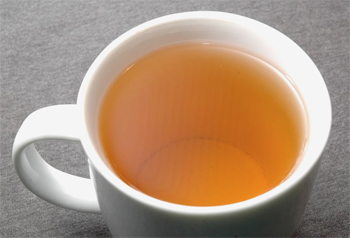March 17, 2008
The Wonderful Properties Of Black Tea

By Michael D. Shaw
We’re all familiar with the beverage derived from the leaves and leaf buds of the plant Camellia sinensis. Black tea is fermented, in a process whereby the leaves are allowed to oxidize and develop deep flavors. While biological pigments known as flavonoids are present in all teas, those in black tea are considered to be more complex.
More than 4,000 flavonoids have been identified, and they have been found to impart beneficial effects on human health, including antiviral, anti-allergic, antiplatelet, anti-inflammatory, anti-tumor, and antioxidant activities.
“The big class of chemicals in tea are flavonoids—a natural class of antioxidants that are found in many natural plant-derived foods,” explains Dr. Kenneth Mukamal, an internist at Beth Israel Deaconess Medical Center in Boston. “In American diets, black tea represents probably the single biggest source of flavonoids.”
Documented health benefits from black tea include:
- Enhanced immunity to flu virus. In a recent study, people who gargled with a black tea extract solution twice per day showed a higher immunity to flu virus compared to the control group.
- Better Bone Density. Statistics indicate that regular tea drinkers (ten years or more) have higher bone mineral density in their spines than non-tea drinkers.
- Heart attack prevention. In one study, people who drank a cup and a half of tea per day were almost 40% less likely to suffer a heart attack, compared to tea abstainers.
- Cutting risk of death after first heart attack. Drinking more than two cups of tea each day decreased the risk of death following a heart attack by 44 percent.
- Slowing the progression of Alzheimer’s. Studies suggest that tea inhibits the activity of the enzyme acetylcholinesterase (AChE), which breaks down the chemical messenger, or neurotransmitter, acetylcholine. Alzheimer’s is characterized by a drop in acetylcholine, and current pharmaceutical drugs are designed to counteract this effect.
Then, there’s the whole range of oral health matters…
“We have found that the [antioxidants] in black tea will suppress the growth of bacteria in the mouth that cause cavities and gum diseases,” says Christine Wu, professor of periodontics at the University of Illinois at Chicago College of Dentistry. “These will inhibit or interfere with the attachment of bacteria to the tooth surface.”
While the anti-microbial properties of black tea have been known for some time, would you believe that it has recently been shown to be effective against the dreaded bacterium Bacillus anthracis—the cause of anthrax, a potentially fatal disease and feared bio-terrorism agent? Research published in the March, 2008 issue of Microbiologist says just that!
A joint American-Welsh team of scientists led by Professor Les Baillie of Cardiff University and Dr. Theresa Gallagher, Biodefense Institute, University of Maryland Biotechnology Institute, Baltimore, reports that English Breakfast tea has the potential to inhibit the activity of anthrax, so long as it is taken black.
“Tea works,” said Prof. Baillie, who bought his anti-bioterror materials from the local supermarket. “You can drink enough to have an effect. We found that special components in tea such as polyphenols have the ability to inhibit the activity of anthrax quite considerably.” Other research indicates that black tea also inhibits Botulinum toxin, the most potent natural occurring toxin, derived from the bacterium Clostridium botulism. Baillie’s group is now testing the effects of tea on antibiotic resistant superbugs, as well.
That serious biodefense types are looking at natural therapies against anthrax and superbugs, reminds us once again of the adage that the Good Lord gave us all the medicines we would ever need in the world of plants.

